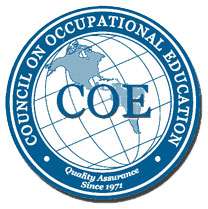Earn Your Healthcare Management Associate Degree
11-Month* Healthcare Management Degree Program in South Los Angeles, CA
Do you like working with people, are you good at solving problems, and can you handle a fast paced environment? Then an associate degree in Healthcare Management from Healthcare Career College might be the perfect fit for you.
In our Healthcare Management Associate Degree program, you will learn the processes and procedures to keep a medical office, clinic or hospital running efficiently. You will also learn billing systems, budgeting, how to manage business documents, and how to keep all of your staff on the same page.
Healthcare Career College, located in Paramount, CA, serves Healthcare Management students in Long Beach, Compton, Lakewood, Downey, Bellflower, Norwalk, Cerritos, the greater Los Angeles area and north Orange County.
The best way to see if Healthcare Career College is the right fit for you is to attend an information session. You can book an information session to get a true feel for what it’s like to be a part of the Healthcare Career College community. Schedule an information session now or Get more info.

Healthcare Management Degree Overview
11 Month* Degree | $132,121 median annual salary**
- 24% Job Growth Over Next 10 Years
- Graduates hired by nursing homes, hospitals, & outpatient clinics
- Advance into Healthcare Administration, Clinical Management and much more!
* Program length when completed in normal time
** https://www.labormarketinfo.edd.ca.gov/OccGuides/Detail.aspx?Soccode=119111&Geography=0604000037 visited on August 12, 2021. Salary source for medical and health services managers with the lowest 25th percentile earning $93,154 to the highest 75th percentile of workers earning $145,600.
Become a Qualified Healthcare Management Professional
During this program, you will learn:
- Medical and dental office procedures
- Insurance billing and collections
- Procedure and Diagnostic Coding
Is a Career in Healthcare Management Right for You? Take the Healthcare Career College "Healthcare Management Career Training Readiness Quiz"
This fun, online quiz takes 3-minutes to complete and you’ll get a personalized report. Identify your strengths and social style plus the training and positions you’re best suited for. Get Your Healthcare Career Training Readiness score now.
Degree Features:
- Flexible course format
- Take one class at a time
- Faculty accomplished in healthcare management
- Practical and relevant courses help you get a competitive edge
Job Outlook:
- Small and large organizations hiring
- Employment growth of 21.9% between 2018 & 2028 in Los Angeles County**
- Employment growth of 23.5% between 2018 & 2028 in California**
- Career growth potential
- Certification is accepted nationally
Being enrolled in Healthcare Career College had opened many doors for me. As a student, I was always encouraged by the staff and my instructors every day. I was determined to make everyone proud, and learn as much as I could about ultrasounds. Everything that was available to us was extremely helpful and brought out every students potential.
Career Opportunities in Healthcare Management
Upon successful completion of the Healthcare Management program, you will be qualified for many interesting positions, including:
- Healthcare Administrator
- Medical Office Manager
- Nursing Case Manager
- Risk Adjustment Manager
- Staff Development Specialist
- And more!
Median Pay: $63.52/hour**
View Healthcare Management job postings in Paramount, CA on Indeed.com
Explore Other Healthcare Career Training Opportunities at Healthcare Career College
Medical Assistant
Medical Billing and Coding
Dental Assistant
Physical Therapy Aide
Massage Therapy
Is a Rewarding Career in Healthcare Management Right for You? Get More Info…
If you’re interested in learning more about careers in Healthcare Management and exploring whether Healthcare Career College is right for you, fill out the form on this page to receive more information.
For immediate questions, call (562) 804-1239
*Program length when completed in normal time.
**Source: EDD/LMID Occupational Employment Statistics Survey 2021


